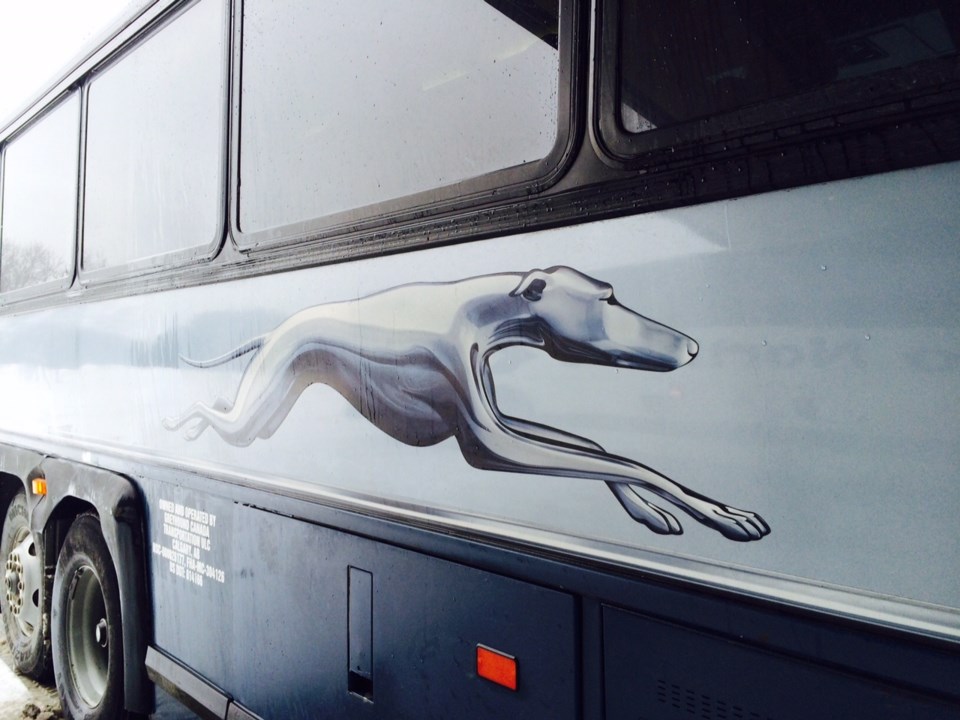Algoma-Manitoulin-Kapuskasing MP, Carol Hughes writes a regular column about provincial initiatives and issues impacting our community.
When Greyhound Canada announced they were cancelling all domestic bus routes this spring, the reaction may have been muted because of circumstance but the decision will have a big effect on those who relied on the service.
Travel restrictions and stay-at-home orders had already reduced domestic travel to the point that the negative repercussions were not felt immediately, but they will be felt by travellers, employers, and businesses as things open up.
While decision-makers may have mistaken this for acceptance, as restrictions ease the loss of bus routes will be felt and more may be heard from those who relied on the option before the pandemic.
In rural and northern areas, the effects may be more pronounced with most travellers unable to take advantage of inexpensive air travel which is partly responsible for the loss of surface options such as bus and rail.
Apart from connecting smaller centres that lack other options, there are also strong economic, environmental, and public safety reasons for Canada to ensure that the bus option is not lost entirely.
The loss of bus service comes after decades of retreat for passenger train services which leaves large parts of the country under-served or lacking a public option altogether. While inexpensive air travel has played a role, the challenges grinding these ground-based transport options to a halt have been unaddressed and even exacerbated by successive federal governments.
The need for leadership is greatest in moments like this where market forces are deepening the divide between Canadians living in cities and those living in towns, especially in rural and northern locals. Without an incentive, companies simply can’t afford to service smaller centres.
There are many compelling reasons for a government partner to ensure some form of bus service is maintained to connect smaller communities, especially environmental considerations. Without a public option, cars become the default mode of transportation creating more greenhouse gas emissions and wearing down road infrastructure more quickly which in turn, creates even more emissions.
This turns to greater costs as we are forced to deal with expenses related to climate change such as the extreme heat we are witnessing in western Canada this summer.
Perhaps a stronger consideration is public safety. Without an affordable option to travel between communities, many individuals turn to hitch-hiking. That was the case for the “Highway of Tears” in British Colombia.
That route has been examined several times in recent years including a First Nations symposium in 2006, which made 33 recommendations and a December 2012 report from the public inquiry into the Robert Pickton case which called for urgent action to improve transportation along that highway. Those concerns can be applied to all our northern roads and an affordable bus option is one way to ensure people aren’t forced into hitchhiking.
As we strive to strengthen our economy and build back from the worst of the pandemic, New Democrats are calling on the government to develop an intercity bus system that can replace what has been lost as bus companies cease operations. This transport is vital to connect Canadians to services, job opportunities, and education. Without a replacement, it will be harder for people to access the services and opportunities they need.
This will disproportionately affect the most vulnerable and marginalized people living in rural Canada, including Indigenous people and seniors.
We believe there are a number of options available to the government including the creation of a new crown corporation or an expansion of the mandate of Via Rail to include public bus transportation. Whatever method is pursued, it will stem the loss of transportation services that has deepened the divide between those living in Canada’s bigger centres and those who reside in small-town, rural, and northern locals.
